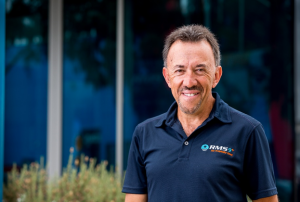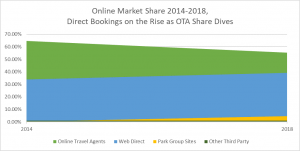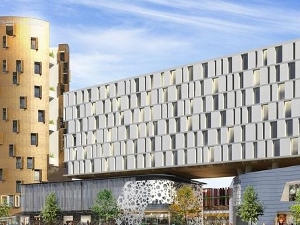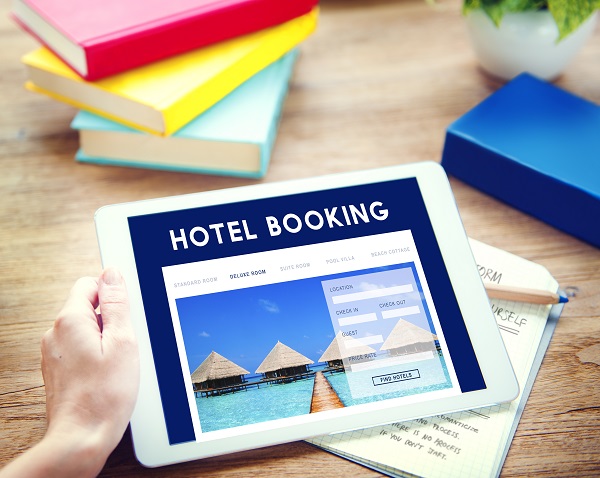
EXCLUSIVE: OTAs losing share as holiday parks fight back on direct bookings
Australian holiday parks are regaining control of their online sales distribution channels and clawing back market share from Booking.com and Expedia, new research reveals.
Analysis of more than two million online bookings made through the RMS Cloud property management platform between 2014 and 2018 shows a significant swing away from OTA-driven bookings.
The RMS Cloud Holiday Park Performance Index shows OTAs lead holiday park direct bookings at 55 percent of the market, but the current trajectory (while there are inevitable ebbs and flows in market share) would see direct sales take the lead by 2024.
 Managing director of RMS Cloud, Peter Buttigieg, says holiday park operators are building better websites and marketing more aggressively to boost their share of online bookings and save on the commissions charged by the dominant OTAs.
Managing director of RMS Cloud, Peter Buttigieg, says holiday park operators are building better websites and marketing more aggressively to boost their share of online bookings and save on the commissions charged by the dominant OTAs.
“The landscape has shifted, and the data shows that for the first time ever the online travel agents are losing market share to holiday park operators,” he said.
“Previously it’s all been one-way traffic in the other direction, but now smart operators have lifted their online game and are fighting back, often with great success, demonstrating that given the choice and a great deal many consumers prefer to book directly with suppliers.”

The research shows holiday park rates peaked in 2015 and have been on the slide in the years since as operators have struggled with a lack of pricing power outside peak holiday periods.
However, 2018 saw a sharp increase in growth in online direct bookings as the industry began to develop strategies to drive direct bookings – and OTA dominance reached the public consciousness through the actions of industry players and Dick Smith’s viral social media campaign.
“Time will tell whether 2018 was a tipping point but it’s becoming increasingly clear to all in the Australian holiday parks industry that operators must take control of their online destiny and not leave their fate in the hands of others,” said Buttigieg.
He argues reducing OTA bookings is a fundamental goal for many operators, especially “progressive multi-park operators” focusing on building their brands through initiatives such as search engine advertising and email campaigns.
The index shows that between 2014-2018, the online market share of Booking.com and Expedia fell from 65 percent to 55 percent, while direct bookings on independent holiday park websites grew 15 percent, climbing from 34 percent in 2014 to 39 percent in 2018.
[pro_ad_display_adzone id=”15046″ align=”left”]It also reveals cabin revenue achieved by operators through their own websites was much higher than via either Expedia or Booking.com, with direct cabin bookings generating an average of 21 percent more revenue per booking than Expedia and 10 percent more than Booking.com.When the 15 percent average commission charged by OTAs is factored in, the income differential between direct and OTA bookings can exceed 30 percent, the analysis shows, although RMS points out that direct bookings often come at a cost – such as marketing, website development or price incentives.
The analysis shows that Expedia is the cheapest channel every time, undercutting operator rates by up to 32 percent.
Reasons touted for the discrepancy between OTA and direct rates include holiday parks using OTAs as a discount channel to fill their cabins during periods of low demand, and parks failing to enforce rate parity, so allowing the OTAs to undercut them and take business.
The index also shows that while Booking.com and Expedia still own 55 percent of web bookings, Booking.com is the clear leader in the battle of the giants and pulling away from its competitor when it comes to the Australian holiday park market.
Outside of direct bookings, consumer trends which have emerged over the past five years include holiday park stays getting shorter and average booking lead times increasing.
The average booking in 2018 was made 39 days out, up from 30 days in 2014. At the same time, average nights per stay have fallen 10 percent, from 2.09 nights to 1.88 nights, significantly impacting the average revenue per booking.
Peter Buttigieg says that in an era of stagnant rates, fighting back on direct bookings is park operators’ best option to maintain or increase profit.
“For that reason alone it is fair to assume 2018 marks the leading edge of a longer-term trend, one that over time may eventually see direct bookings exceed those coming through the OTAs,” he said.

AccomNews is not affiliated with any government agency, body or political party. We are an independently owned, family-operated magazine.





